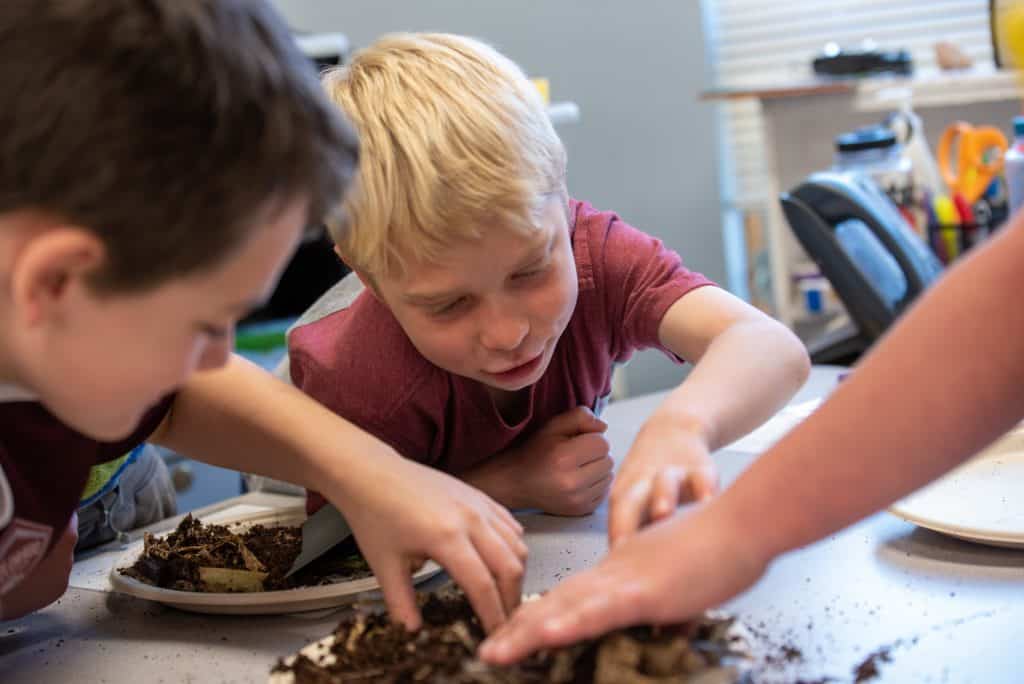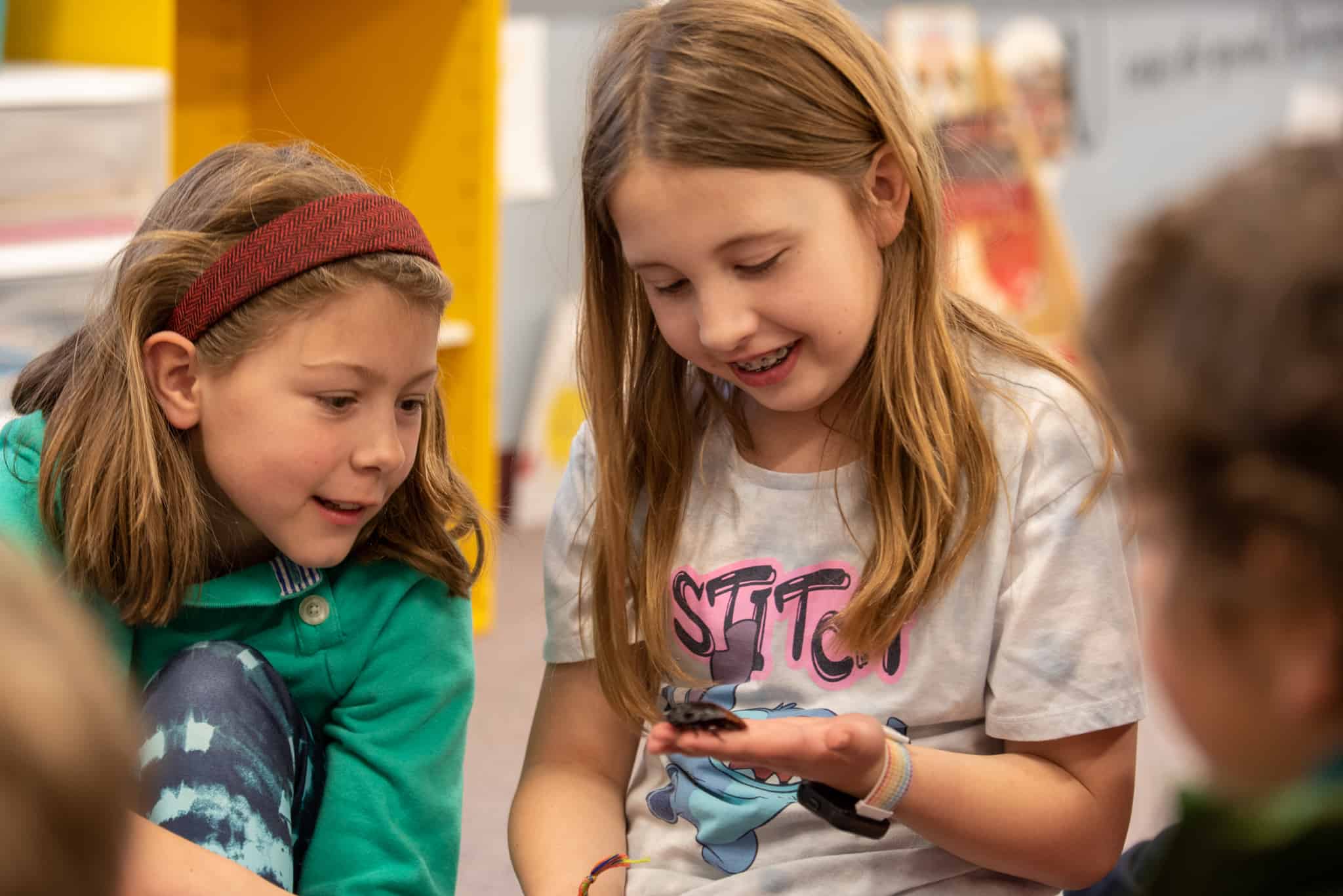At Lyons Elementary, students in Sara Foster-Barone’s second-grade class recently explored the fascinating world of insects through an immersive learning session led by Thorne Nature Experience, an organization dedicated to connecting youth with nature through environmental education.
Thorne’s in-school program focuses on interactive explorations, inquiry-based experiments, and hands-on use of scientific instruments and specimens to boost science and literacy skills. Their lessons also complement Lyons’ Science, Technology, Engineering, and Math (STEM) programming, with a focus on the school garden, by providing learning opportunities that align with the second-grade science curriculum on insects.
During the session, a Thorne educator brought two crates into the classroom, one containing Madagascar hissing cockroaches and the other housing dirt and earthworms, both essential decomposers vital for maintaining healthy soil. In one corner of the room, students had the chance to hold a cockroach and learn about its habitats and roles in decomposition. They also practiced empathy by monitoring it closely to ensure its comfort and safety. While a few students hesitated, others eagerly embraced the opportunity to interact with the large insect.
On the opposite side of the room, students dug into the other crate and pulled out a cup of dirt and worms. Carefully placing them on a mat, they observed the worms’ responses to light and food scraps in the soil and also identified various body parts like the clitellum. “We currently have a second grade vermiculture (worm composting) that helps improve the health of our school garden,” shared Foster-Barone. “Through this lesson with Thorne Nature Experience, students learned the specifics of worm anatomy and what they do to create healthy soil.”

Sarah Wegert, Lyons Elementary STEM Coordinator, explained that in the STEM Lab, second graders expand on agriculture concepts including vermiculture, smart garden sensors, hydroponic farming, and native plants vs. noxious weeds. “Students monitor and care for the vermicomposting bin in our lab and utilize the worm castings for a more productive harvest.”
All second graders are stewards of the school’s garden, often dedicating time during lunch breaks and on late-start days to work in it. “The very exciting thing about second-grade Science and Leadership for our students is that we plant, tend, and harvest lots of vegetables that are directly donated to our local LEAF Food Bank to feed Lyons residents in need,” said Foster-Barone.

